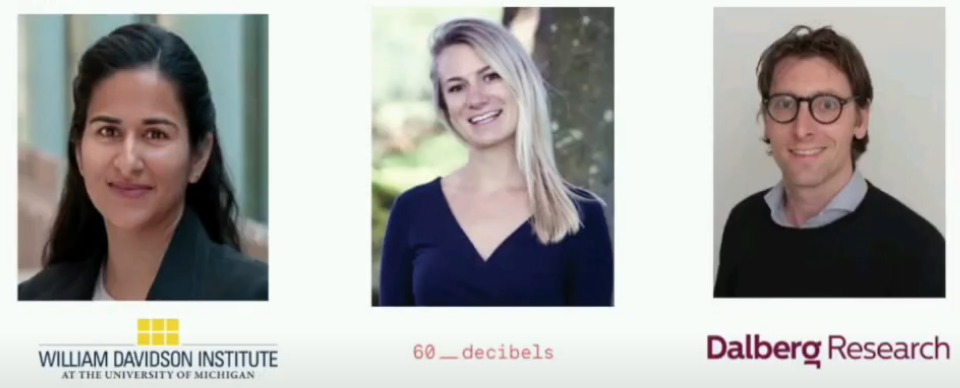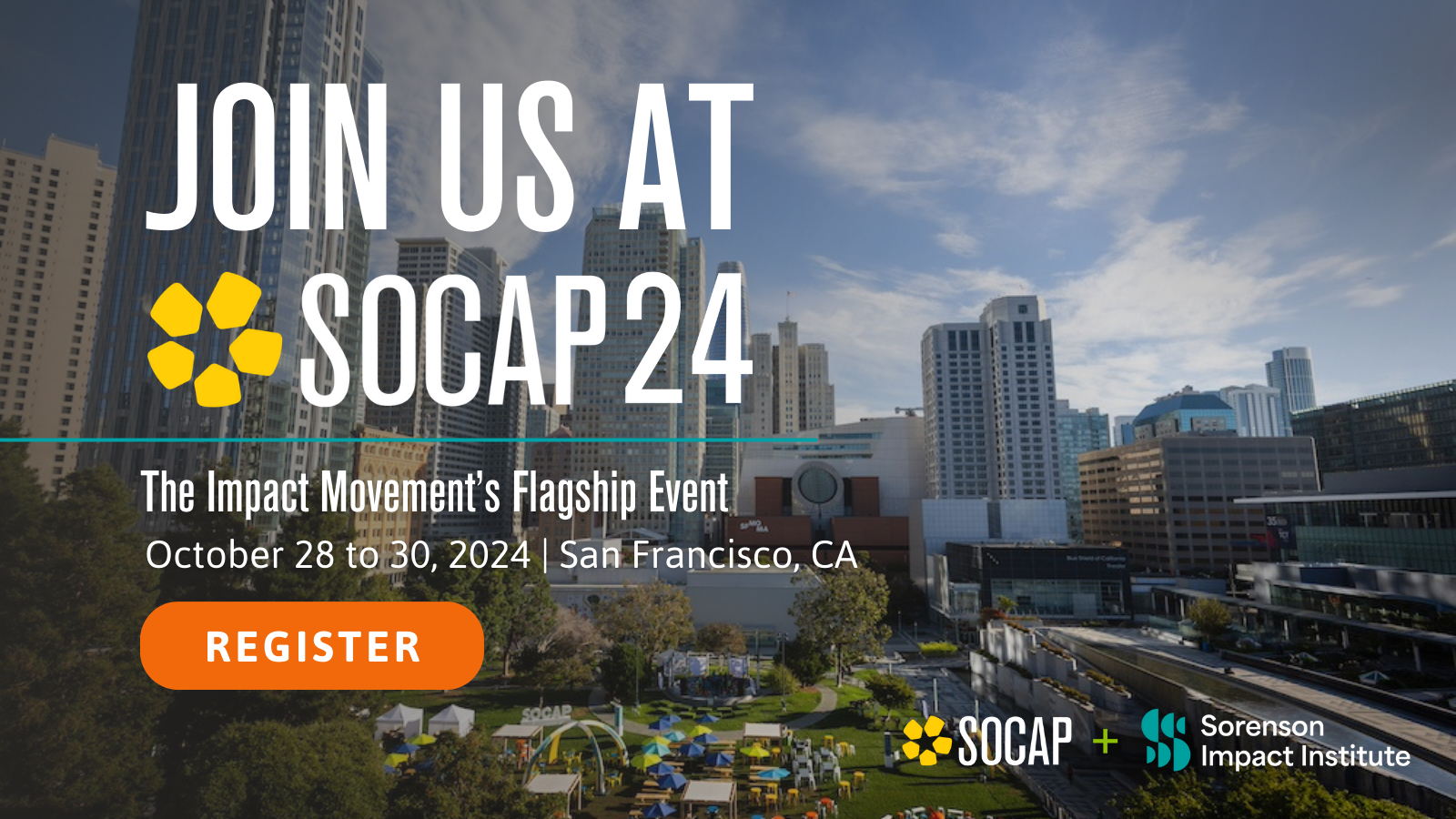From SOCAP21: Research to Collect Social Impact Data and Advance Gender Equity
As more impact investors seek projects that address gender equity, they also are looking for data to support that work and improve its effectiveness. The research to capture the voices of people in marginalized communities can often be challenging and sensitive, but the data is critical for adapting operations to complex and changing realities.
An action-oriented SOCAP21 session designed to help others in their work to collect this critical data featured cross-sector leaders who discussed their experience in developing the evidence base for gender lens investing in small and medium enterprises (SMEs). Yaquta Fatehi, Program Manager at the William Davidson Institute at the University of Michigan, shared her organization’s experience as a research partner to G-SEARCh, a consortium looking to build the business case for gender equity in investing to create more sustainable and inclusive economies.
“Our goal is to measure and understand the social and financial impacts of these gender-smart technical assistance activities,” she said, adding that the work involves five case studies involving primary research and data collection with 60 Decibels and Dalberg Research.
She noted inherent challenges of data collection and research. “There is always this inherent tension that stakeholders face between measurement activities and data integrity and versus the realities on the ground and the many priorities of SMEs working in complex environments,” Fatehi said. “You cannot let the perfect be the enemy of the good. The best you can do is co-create measurement strategies with key stakeholders and use the insights and feedback from the world around you to adjust and adapt the intervention and the measurement plan.”
At research partner 60 Decibels, Head of Research Operation Ashley Speyer and colleagues focus on survey design and remote data collection for impact measurement. By working with impact investors, foundations, companies, and other organizations, 60 Decibels seeks to understand what success looks like for the impact measurement process.
“So often when we talk about measurement, the response we get is that it’s too hard, complex, and burdensome,” Speyer said. “The language implies that measurement is a difficult ask. We need to reframe this. Ultimately this is about the importance of listening, and it should be valuable for everyone involved. Think of it as a shift away from a fixed mindset to a growth mindset.”
In its use of phone surveys, she said 60 Decibels emphasizes that surveys must be ethical and enjoyable, with relevant and actionable questions designed to gather accurate and informative data. “It’s important to state that these are real people behind the data in impact reports, and their voice matters,” Speyer said. “There’s a ton of richness in this data that’s being left on the table if we continue to approach measurement as a difficult ask that’s overly burdensome.”
At Dalberg Research, the focus is on partnerships with businesses, NGOs, governments, and other institutions looking to drive sustainable and inclusive growth in Africa. The research company uses quantitative and qualitative studies in its work to learn more about markets, consumers, and lifestyles.
Research Manager Jasper Gosselt said Dalberg incorporates one key component: a research framework that examines why gender inequalities exist and persist. “It’s important to be mindful of research and measuring things to be inclusive,” he said. “It’s critical that we not only increase awareness but try to be transformative in how we address gender inequalities. That means we need to critically think about how we design and execute research.”
Often, that means taking a closer look at sampling criteria to ensure it captures all the key perspectives necessary to understand gender dynamics. For example, he said, food security often is measured at the household level. “Typically, the head of household answers,” Gosselt said. “But within the household the situation can be quite different.”
Gender Equity in Investing: Watch Processes and Technologies to Collect Social Impact Data with SMEs
Speakers:
Yaquta Fatehi, Program Manager, William Davidson Institute at the University of Michigan
Ashley Speyer, Head of Research Operations, 60 Decibels
Jasper Gosselt, Research Manager, Dalberg Research







